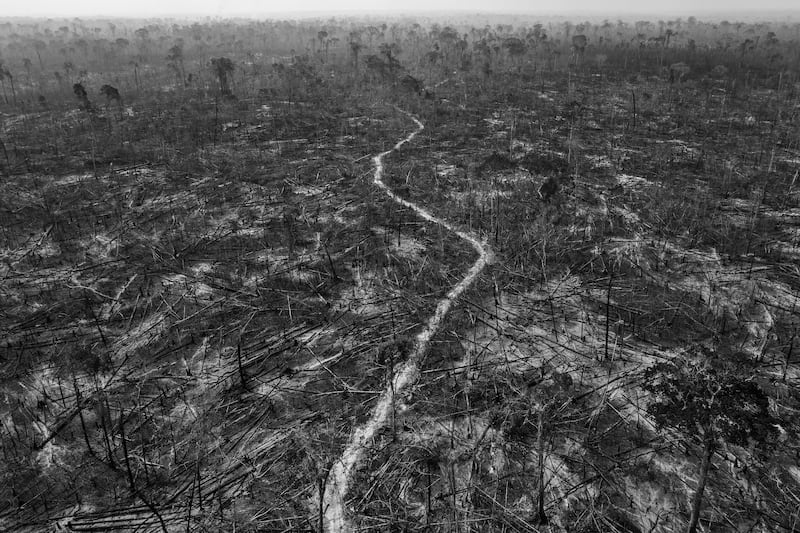Replacing 20 per cent of the world’s per-capita beef consumption with beef alternatives by 2050 would reduce methane emissions by 11 per cent and halve annual deforestation and associated emissions, a new study indicates.
The study, published by Nature magazine on Wednesday, found that replacing 50 per cent of the beef consumed per person would result in a more than 80 per cent reduction in deforestation and associated carbon emissions.
Substituting 80 per cent of beef would eliminate about 90 per cent of forest loss, according to the study.
Beef farming is a top driver of deforestation worldwide, and cattle raised for beef are a major source of methane, a more potent greenhouse gas than carbon dioxide, the study said.
Business Extra: What is a carbon market and how does it address climate change?

A global increase in beef consumption would require the expansion of pasture areas for grazing and of cropland for feed production, which would double the annual rate of deforestation globally, according to the study. Methane emissions and agricultural water use would also increase.
“Replacing beef with meat alternatives could reduce some of the food production’s environmental footprint, but it won’t solve the climate crisis,” said study lead author Florian Humpenöder, a sustainability scientist at the Potsdam Institute for Climate Impact Research in Germany.
One of the meat alternatives suggested is mycoprotein, which is produced in steel tanks by fermenting a soil-dwelling fungus with glucose and other nutrients as a food source.
Mycoprotein is a meat substitute that made its debut in the UK in the 1980s under the brand name Quorn, and is now readily available in many countries.
Mr Humpenöder and his colleagues are the first to estimate the environmental effects of partially replacing beef with mycoprotein over time.
The team used a mathematical model that considered increasing population growth, income and livestock demand between 2020 and 2050.
The mitigating effects on deforestation are so great because, under this scenario, global demand for beef does not increase, so there is no need to expand pasture areas or cropland for feeding cattle, Mr Humpenöder said.






